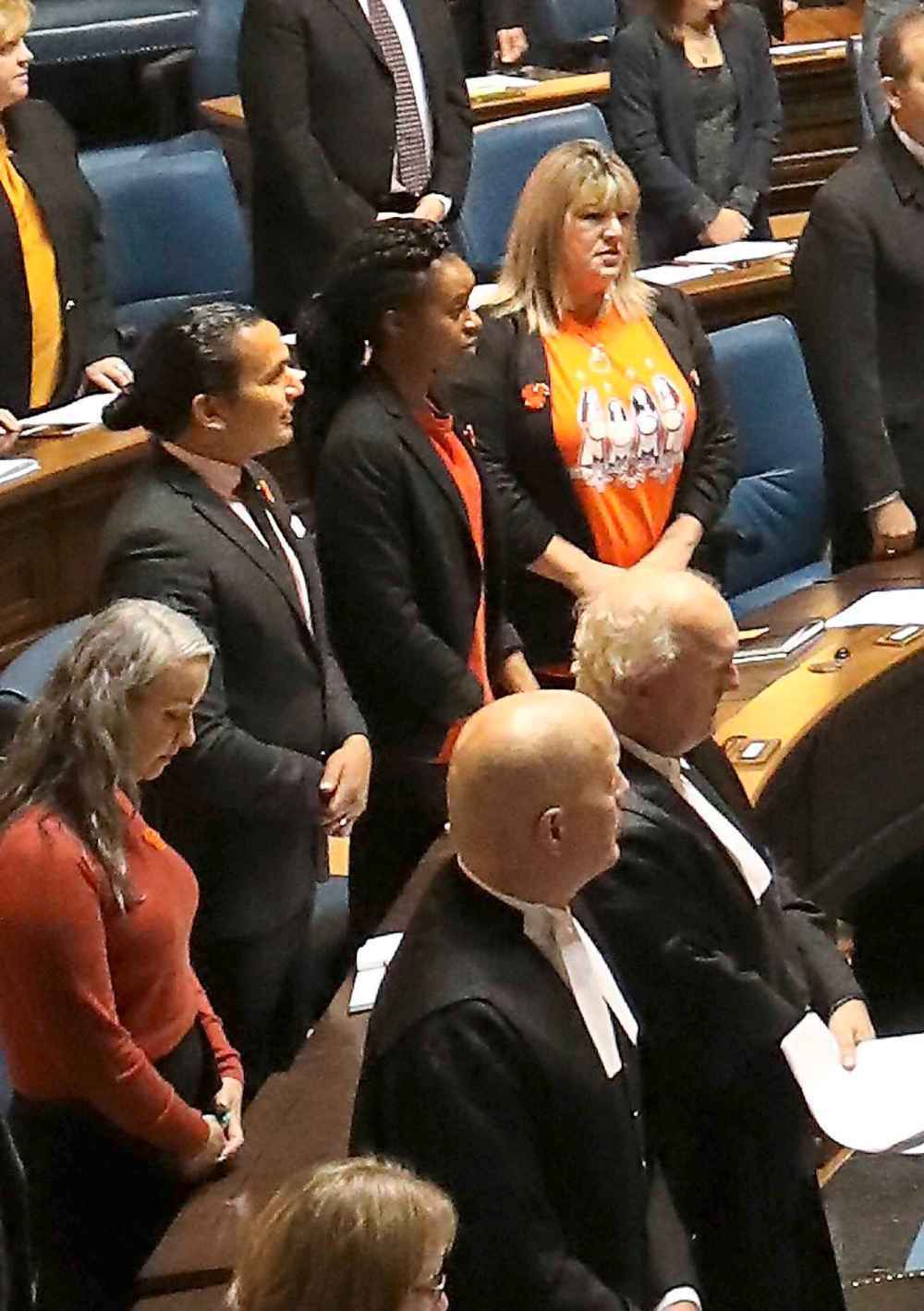Manitoba assembly offers ‘more voices to be heard’
Advertisement
Read this article for free:
or
Already have an account? Log in here »
To continue reading, please subscribe:
Monthly Digital Subscription
$0 for the first 4 weeks*
- Enjoy unlimited reading on winnipegfreepress.com
- Read the E-Edition, our digital replica newspaper
- Access News Break, our award-winning app
- Play interactive puzzles
*No charge for 4 weeks then price increases to the regular rate of $19.00 plus GST every four weeks. Offer available to new and qualified returning subscribers only. Cancel any time.
Monthly Digital Subscription
$4.75/week*
- Enjoy unlimited reading on winnipegfreepress.com
- Read the E-Edition, our digital replica newspaper
- Access News Break, our award-winning app
- Play interactive puzzles
*Billed as $19 plus GST every four weeks. Cancel any time.
To continue reading, please subscribe:
Add Free Press access to your Brandon Sun subscription for only an additional
$1 for the first 4 weeks*
*Your next subscription payment will increase by $1.00 and you will be charged $16.99 plus GST for four weeks. After four weeks, your payment will increase to $23.99 plus GST every four weeks.
Read unlimited articles for free today:
or
Already have an account? Log in here »
Hey there, time traveller!
This article was published 30/09/2019 (2265 days ago), so information in it may no longer be current.
The Manitoba legislative session began anew Monday with 15 fresh faces, who are among the most diverse to set foot in the chamber.
Among them are the province’s first three black MLAs: Audrey Gordon of the Progressive Conservatives, and Uzoma Asagwara and Jamie Moses of the NDP.
Asagwara (Union Station) also appears to be the first gender non-conforming MLA in the province’s history.

Before the Sept. 10 election, the Free Press asked all 57 MLAs for information about their gender, race, age, and education backgrounds in an effort to get a sense of how diverse the legislature was at dissolution. Most of the members responded, though not to every question.
Forty-three men and 14 women sat in the Manitoba legislative assembly last session (25 per cent female representation and 75 per cent male); 15 women, 43 men and one gender non-conforming person are now present.
In terms of racial diversity, the legislative assembly remains mostly white, with 45 Caucasian MLAs at dissolution, and 43 now. There are also five Indigenous, three black, two Métis, two Filipino, and two South Asian MLAs.
The assembly’s median age has gotten younger, dropping to 49 years old, from 54.5 during the last session.
Members’ education backgrounds remain relatively similar. At least 31 MLAs went to university, and 14 of them obtained multiple degrees.
Eight others listed high school as their highest form of education, and seven have college and/or trade school diplomas. Some members also listed extra credentials they obtained while at work.
For the chairperson of Equal Voice Manitoba — a multi-partisan group that aims to see more women elected at every level of government — the 2019 election results provided hope for better policy discussions going forward.
“I’m hoping that we’ll start to see a higher level of discourse,” Meghan Chorney said Monday. “So talking about respect in the house and people discussing others’ opinions. There’s more diversity, there’s more voices to be heard, there’s more points of view to be shared.”
Chorney acknowledged this variety of perspectives could mean more points of contention and disagreement, too.
“I hope that with more people and more points of view represented that people will have greater respect for those expressing those opinions and those views,” she said.
jessica.botelho@freepress.mb.ca
Twitter: @_jessbu
History
Updated on Monday, September 30, 2019 7:21 PM CDT: Adds photo
Updated on Monday, September 30, 2019 7:30 PM CDT: Changes main photo

